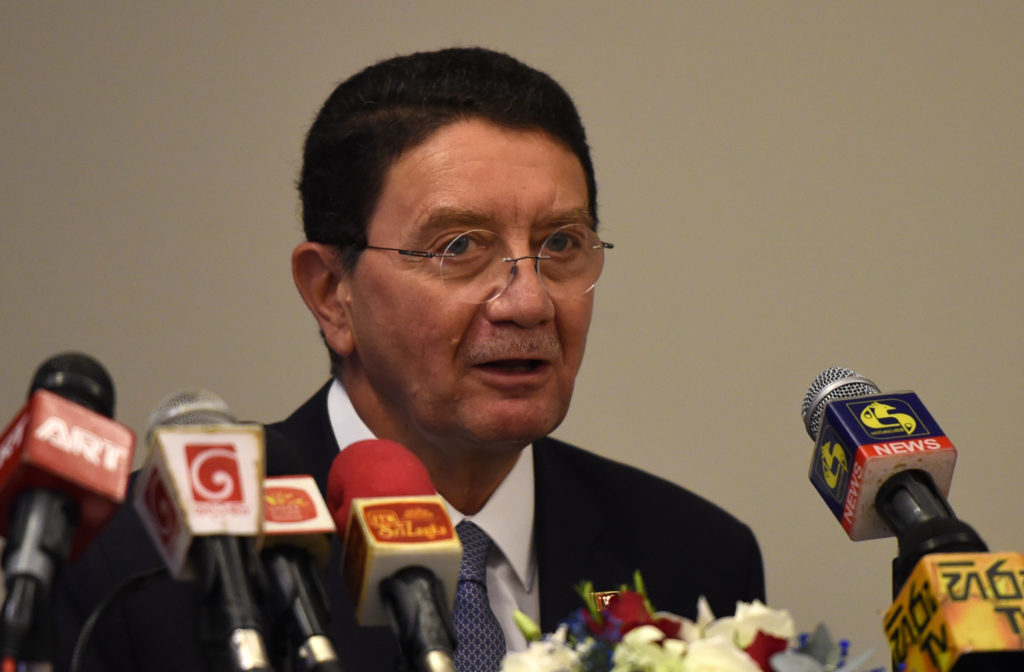PUERTO PRINCESA CITY — The chief of the United Nations World Tourism Organization (UNWTO) has urged governments to be more circumspect before issuing travel advisories as this could aggravate the situation in an already aggrieved country like the Philippines, which is fighting terrorism.
“You can’t punish the victim and reward the aggressor (and) that’s what we’re doing by putting travel bans,” UNWTO Secretary General Taleb Rifai told reporters here on Friday.
“These terrorists, these forces of darkness, they want us to hate each other,” he said. “They want us to mistrust each other. Travel brings us together as a human community so we need to recognize what agenda are we serving and whose agenda are we serving.”
Rifai, who had addressed the 6th International Conference on Tourism Statistics in Manila, made a side trip to Palawan, one of the popular tourist destinations in the country.
The Philippines has received a poor rating in the 2017 World Economic Forum travel and tourism competitiveness report.
Travel guides and business owners in Palawan have reported that tourism has been suffering from the travel advisory issued by the US embassy in May that warned Americans of possible terrorist attacks on the island.
The British Embassy in Manila has also issued a similar advisory, which followed a foiled plan by the Abu Sayyaf group to seize hostages in tourist spots in Bohol province.
Issuing bans ‘responsibly’
“While we recognize that it’s the duty of every country to protect its citizens, you should do that [issuing travel bans] in an intelligent, responsible way,” said Rifai, who came to the country with his family.
“We are holding these countries accountable to what they have approved themselves. We have no armies, we have no power, but we have a moral edge and we can speak in the name of international community,” Rifai added.
Despite the gun battles between government forces and fighters linked to Islamic State in Marawi City, Rifai expressed confidence that the Philippine government could provide security to foreign tourists.
Although the threat from the terrorists in the Philippines “does have some connection with the international terrorist network,” Rifai said foreign governments should not to be “too conscious about it.”
“Don’t be too worried about it. You have to do what you have to do. You have to protect your people, you have to impose whatever needs to be imposed at this point in time, but that does not mean people should not travel or you should stop your efforts to bring in people here,” he said.
Responding to a question on safety and security issues in the Philippines, Rifai said the holding of an international conference in the country would help ease worries of foreign governments.
“When you have an organization like the UNWTO, which is connected to the UN system coming [to the Philippines] and saying, ‘We have enough confidence in the country to hold an international meeting,’ that sends a message to the whole world,” Rifai said.
Lifted bans
He said that as events in the south unfolded last month, the UNWTO worked closely with the Department of Tourism to reach out to governments that have “wrongly” enforced travel bans on the Philippines.
“Because of [these] efforts, there were many countries that were imposing travel bans that lifted these travel bans. But there will always be countries that do not want to believe other than their voices, their own perceptions,” he said.
Rifai reminded the 193 UN member-countries to “observe closely” UNWTO’s guidelines on travel bans.
One guideline specified that a travel ban should be location-specific and should be lifted once the situation has improved, he said.
Another called on governments planning to issue travel advisories to hold prior consultations with the countries concerned about the real situation.
